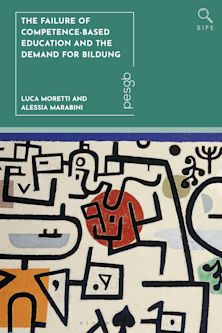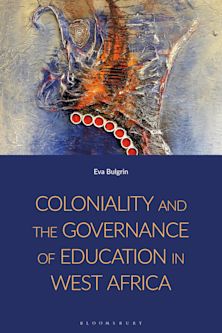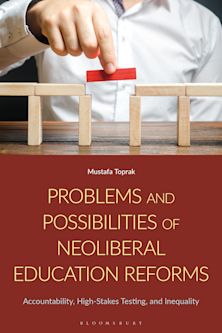- Home
- ACADEMIC
- Education
- Education Policy and Politics
- The Fractured Schoolhouse
The Fractured Schoolhouse
Reexamining Education for a Free, Equal, and Harmonious Society
The Fractured Schoolhouse
Reexamining Education for a Free, Equal, and Harmonious Society
This product is usually dispatched within 1 week
- Delivery and returns info
-
Free US delivery on orders $35 or over
You must sign in to add this item to your wishlist. Please sign in or create an account
Description
American public schooling was established to unify diverse people and prepare citizens for democracy. Intuitively, it would teach diverse people the same values, preferably in the same buildings, with the goal that they will learn to get along and uphold government by the people. But intuition can be wrong; significant evidence suggests that public schools have not brought diverse people together, whether from legally mandated racial segregation, espousing values many people could not accept, or human beings simply tending to associate with others like themselves. Indeed, the basic reality that people have diverse values and desires has rendered public schooling not a unifying force, but a battleground. That public schooling is necessary for democracy is also not supported, both because we do not have a commonly agreed upon definition of “democracy,” and because public schooling violates the bedrock American value—liberty—that democracy is supposed to protect. The Fractured Schoolhouse: Reexamining Education for a Free, Equal, and Harmonious Society proposes that to fulfill the mission of public schooling, we need what some might call its opposite: school choice. Education grounded in liberty would enable diverse people to pursue curricula and policies they think are right without having to impose them on others, and by making separated groups equals and easing the creation of new identities, it would foster bridge-building.
Table of Contents
Introduction
Chapter 1. Why Do We Have Government Schooling?
Chapter 2. Reality Begs to Differ: Little Unity, Wrenching Conflict
Chapter 3. Why Think Public Schools Would Unify?
Chapter 4. The “Democracy” Problem
Chapter 5. American Values
Chapter 6. Is Freedom the Key to Unity and Equality?
Chapter 7. For Peace and Cohesion, We Need Educational Liberty
Bibliography
Index
About the Author
Product details
| Published | Sep 23 2022 |
|---|---|
| Format | Hardback |
| Edition | 1st |
| Extent | 234 |
| ISBN | 9781475864243 |
| Imprint | Rowman & Littlefield Publishers |
| Dimensions | 9 x 6 inches |
| Publisher | Bloomsbury Publishing |
About the contributors
Reviews
-
In this thoughtful and thought-provoking book, Neal McCluskey demonstrates that for over 150 years defenders of public education, as traditionally defined, have over-promised and under-delivered. That is especially the case when it comes to the aspiration of zip code-based schooling bringing diverse Americans together. More often than not, one-size-fits-all education has contributed to our culture wars rather than alleviating them. This does not mean that school choice will usher in a new era of peace, but it does remove a major argument against choice.
Michael Petrilli, president, Thomas B. Fordham Institute
-
In The Fractured Schoolhouse: Reexamining Education for a Free, Equal, and Harmonious Society, Neal McCluskey marshals an impressive mountain of evidence to make the case for a radical form of educational freedom.
Charles L. Glenn, professor emeritus of educational leadership and policy studies, Boston University
-
Neal McCluskey’s The Fractured Schoolhouse melds often overlooked history and political theory into current events, creating a seamless argument for education toleration through school choice. McCluskey’s engaging yet nuanced polemic should be required reading in both education policy classes and school board training sessions.
Robert Maranto, 21st Century Chair in Leadership, University of Arkansas; Fayetteville School Board, 2015-2020; editor, Journal of School Choice
-
McCluskey’s book discusses something that is understood but often left unsaid: that our public education systems are not neutral. That lack of neutrality requires optionality for families, and in particular for those whose needs have not traditionally been met by our public education systems, and those who have been historically excluded from shaping the policies it promotes.
Derrell Bradford, president, 50CAN


































